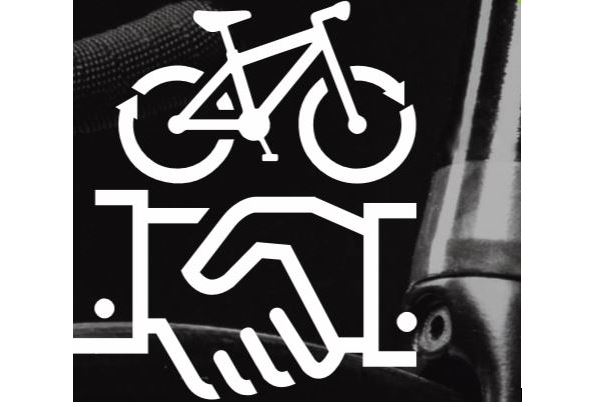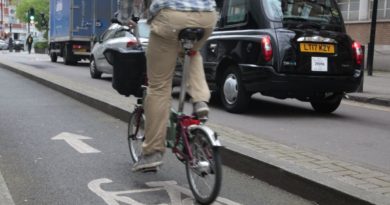Is the cycle market ripe for a decent second hand cycle trade?
Was your first car second hand? Why hasn’t the bicycle industry managed to import the part exchange model so successfully used by the motor trade? And with higher ticket e-bikes growing in popularity, is the market now ripe for a decent second hand cycle trade? CIN speaks with Cycle Exchange’s founder and CEO Matt Connelley about how his firm can help the nation’s bike dealers…
Regular readers may recall our last edition of CIN (issue 02//2019) invited the trade to discuss what ideas for shifting product cycle retail could take from the motor trade which, current difficulties with Brexit aside, is doing pretty well – undeniably, it has made a pretty decent fist of getting new cars into the hands of consumers.
The part-exchange model has been a motor industry standard for decades, lining motor pockets with untold millions. But as yet, the cycle trade has been unable or unwilling to make such a model work. The part exchange model is one our industry panel could see potential in, but without anyone offering the service and challenges in terms of resell value, there were real obstacles in seeing such a concept work in cycle retail.
Cycle Exchange buys, sells and exchanges predominantly second hand bikes. Cycle Exchange founder Matt Connelley tells CIN: “As a bike trader we own all the stock we hold, so if you have a bike to sell and we can agree a price, the funds are credited to you within a few hours of bike inspection.”
“We work with a growing list of bike shops and we facilitate part exchange for them. So, if one of their customers wants to trade in a bike against a new one, we provide a price and organise collection. The funds are credited to the shop so they can use that as part payment for the customers new bike.”
Bike shops who like the potential of, but are daunted by the mechanics, of offering part exchange in the sale of new bikes should approach Cycle Exchange, Connelley explains: “Part exchange of bikes makes complete sense but is not straightforward for a retailer. They are difficult to price and not easy to sell on, especially if you don’t have space or time to deal with it. It’s a real hassle – we take all that away.”
Cycle Exchange has been in business for a number of years, predominantly concentrating on the road sector, but has been broadening its focus out in recent times: “We have been mainly focused on road and tri bikes but are moving quickly into off road – gravel and mountain bikes. MTBs are a bigger challenge as a used product – both for storage and how they are used. We have a tonne of MTB experience in house and are moving to bigger premises for the extra space required.”
One other trend is the growth of electric bikes. These higher ticket items, in theory, are absolute prime candidates for part exchange, with the potential to retain much of their value on the second-hand market. “We are definitely keeping a keen eye on how that develops, it’s still niche in the UK but that will change and we will be ready.”
“When people discover we exist, their response is usually one of relief”
Cycle Exchange was developed out of a customer need. Connelley picks up the story: “I’ve been into road cycling and triathlon for many years but I came new to the cycling industry in 2013. I’d been trying to buy a TT bike on eBay as I didn’t want to buy a new one. After being messed around so much it was clear there was a gap, and a professional bike trader was needed, particularly with the popularity and cost of decent bikes rising so much.”
The firm started out with a website and after two years found there was a need to open a bricks and mortar outlet. “The website and the focus on ecommerce is key for the business and future growth but it is also important to have a bricks and mortar presence especially for higher end sales. People want to know there is a permanent base which they can visit and return to if there are any issues. Our Kingston store has helped unlock a significant and loyal customer base. We sell bikes from £200 to £10,000 and we warranty every sale.”
With the pace of change on the high street, have attitudes changes to the pre-owned bikes market? “When people discover we exist, their response is usually one of relief. That there is a trusted service for dealing with used bikes has definitely changed the attitudes of our trade and consumer customers. Growth has been strong but doesn’t come without challenge. Margins are hard sought and aggressive discounting by retailers makes pricing tough. Being able to turn bikes over quickly is critical to cash flow.
“I think cycle retail has its challenges whether new or preowned, the structure of the market means margins are very thin for retailers. That makes them vulnerable to a shift in market conditions be that technology or product orientated. I do think there is room for growth in preowned but that will only come if the service and quality assurance is actually better than the first hand market. Buyers are rightfully wary of buying an expensive second hand bike, there is no manufacturer warranty to fall back on or reliable registration the accounts for the bike’s history.”
Connelley concludes: “If you want to increase sales and have a more enduring relationship with your customers then part exchange is key. Working with us will remove the risk that comes with second hand bikes.”
Get in contact to become a part-ex partner via partners@Cycleexchange.co.uk.



